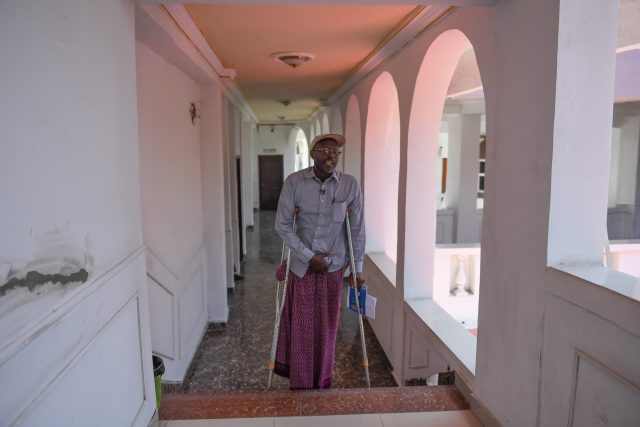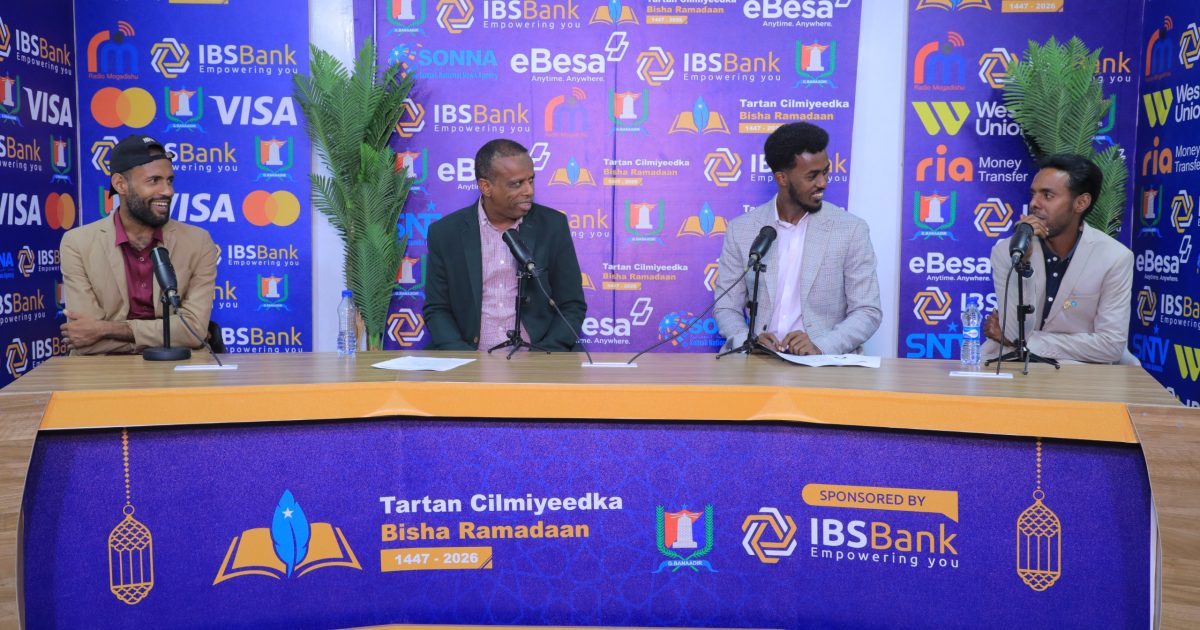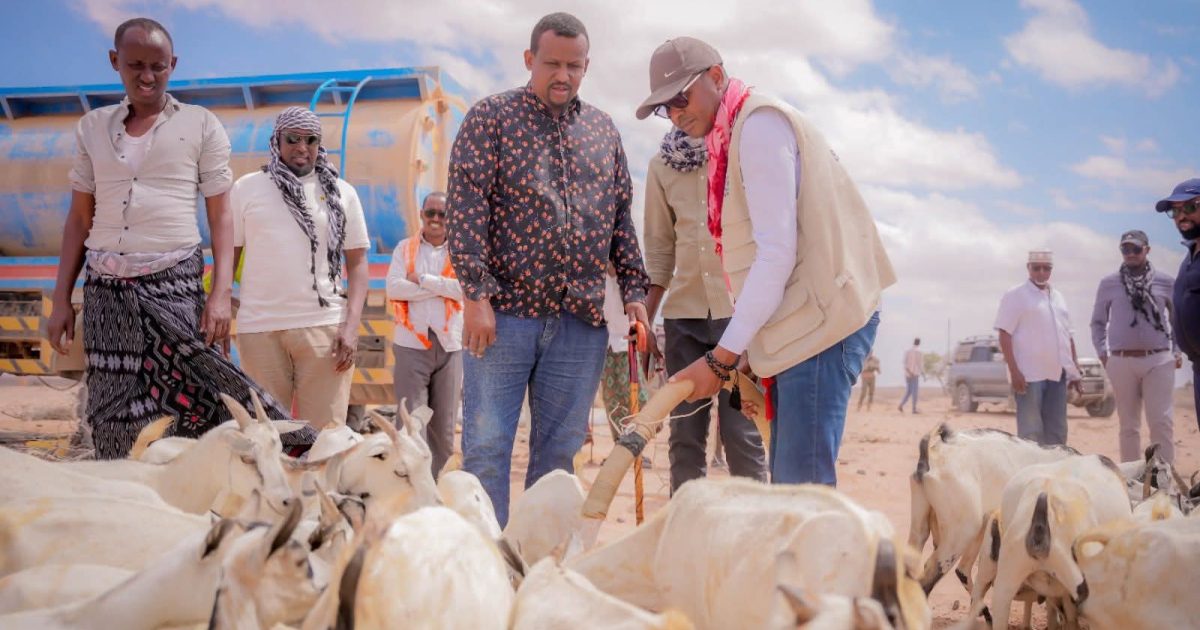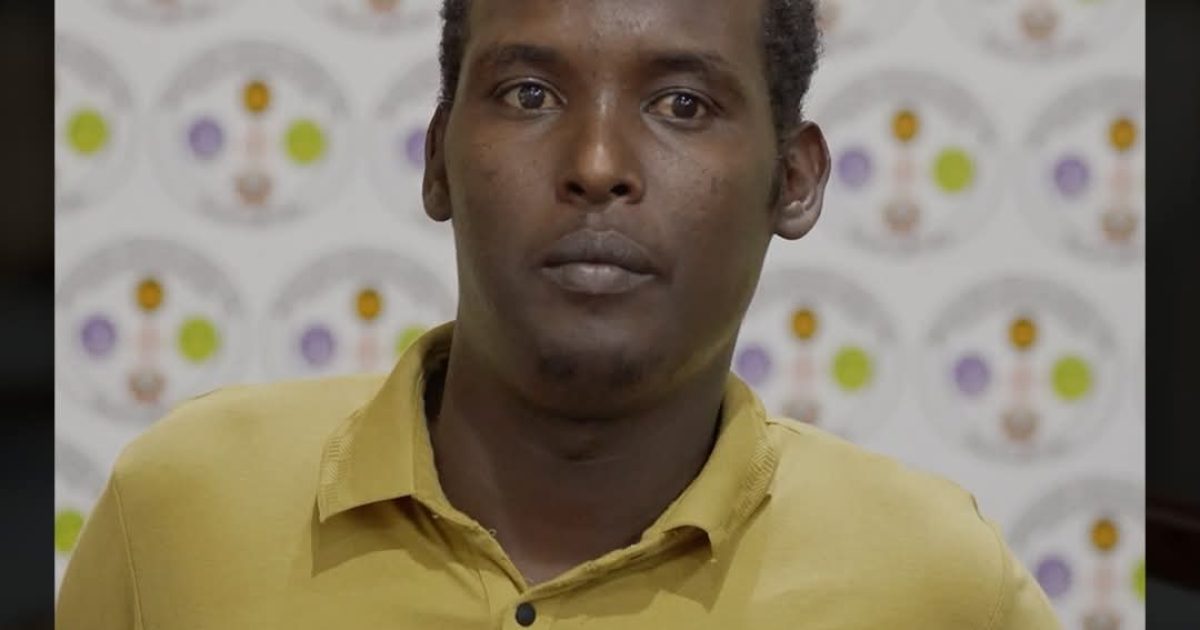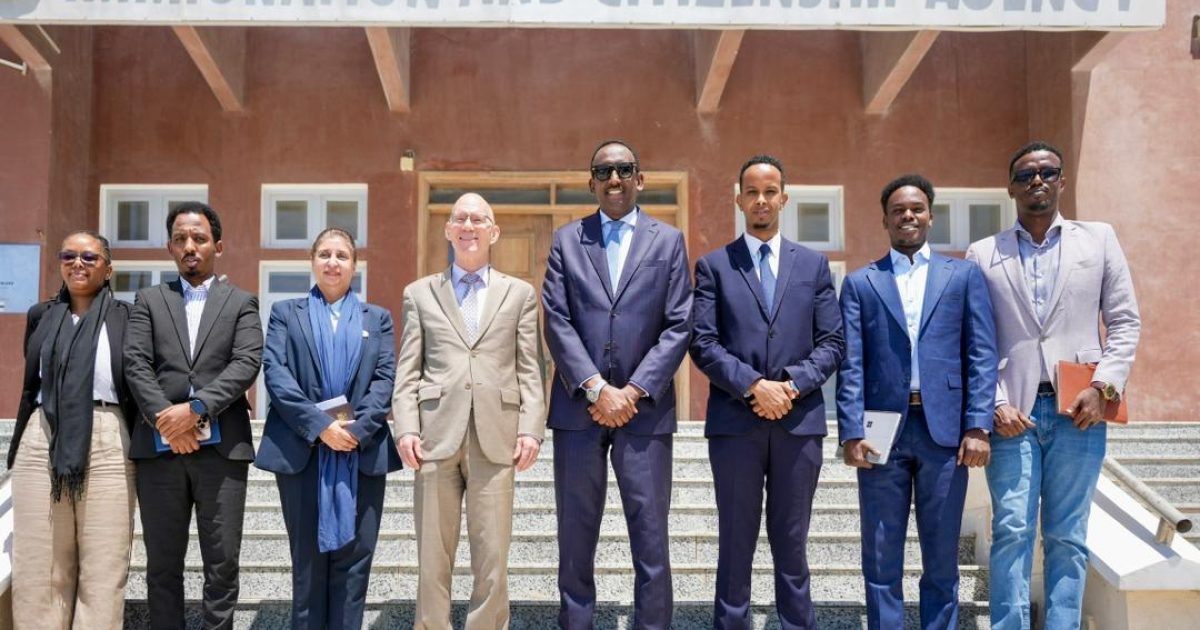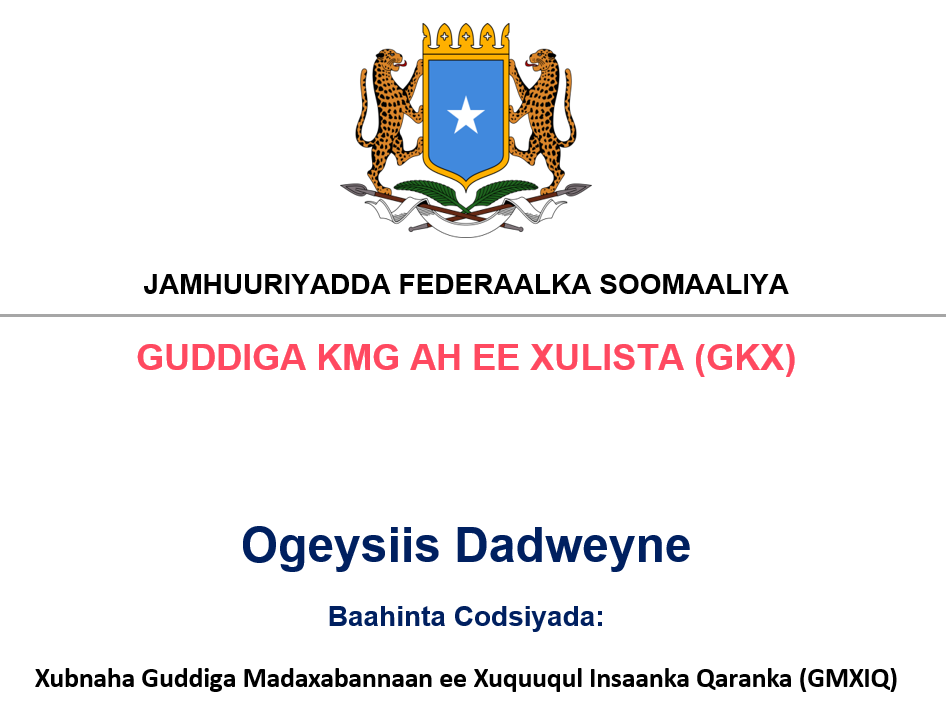Sayid-Ali Abdullahi Salad vividly remembers the fateful day at the height of the civil war in Somalia in 1997 when his life was changed forever – a seemingly routine meeting to resolve a dispute erupted into violence that almost cost the volunteer peace mediator his life.
Together with other peace activists, Sayid-Ali, then a student at the Somali National University, had accompanied a traditional elder to Wadajir district in the capital city of Mogadishu to help mediate between two warring clans. They were looking forward to a positive outcome, but in the middle of the negotiations, tensions suddenly escalated.
“Things ended up in disarray. One of the groups became hostile and opened fire. The first round of bullets hit my right leg and shattered the bone,” Sayid-Ali, now 41 years of age, recalls.
He was critically wounded in the attack. His colleagues were able to duck the hail of bullets and escape unhurt.
“They scampered for safety, but I wasn’t that lucky. When I was hit, I passed out and regained consciousness in hospital, where I had been rushed by my friends,” Sayed-Ali adds.
Prompt medical intervention at Benadir Hospital, where Sayid-Ali’s fellow mediators took him for treatment, saved his life. His leg, however, had to be amputated.
Living with disability
“The shooting was a double tragedy to me. I couldn’t continue with my education after the incident,” the former veterinary medicine student says.
Soon after his discharge from hospital, Sayid-Ali was confronted with the painful reality of coping with a lifelong disability in a country torn apart by violence.
“I experienced first-hand the stigma associated with disability and the ill-treatment meted out by society to physically-challenged persons,” he recalls.
For years, Sayid-Ali endured a life of isolation. Friends deserted him. Acquaintances mocked him and called him ‘lugey’ or ‘jiis’ – pejorative slurs that mean ‘the man who limps’ or ‘the one-legged man’ in the Somali language.
Counting only on his family’s support, Sayid-Ali rebuilt his life around a small retail business that kept him busy. He slowly regained his commitment to help others overcome conflict, find common ground and live together peacefully. In the process, he became a dedicated advocate for the rights of persons with disabilities.
Enabling
“I started advocating for the rights of people with disabilities by speaking at youth meetings, sport events and other gatherings,” remarks Sayid- Ali.
In 2012, he co-founded the Somali National Disability Council, and he was elected its chairman shortly thereafter. He used the council as a platform to push for the enactment of laws to safeguard the interests of disabled people.
“People living with disabilities have the same rights as everyone else. My goal is to help them enjoy those rights, just like the rest of the disabled persons in the world,” the activist says.
In the absence of reliable statistics and information, experts estimate that the number of persons with disabilities in Somalia is higher than the global average of 15 per cent of the population, owing to the country’s prolonged conflict. For these hundreds of thousands of Somalis, access to adequate health care, facilities, education, and social inclusion and opportunities are crucial.
These facts underpinned Sayid-Ali’s message at a recent gathering in Mogadishu at which civil society representatives joined the country’s national consultative conference process about establishing a new and permanent Constitution and organizing the ‘one person, one vote’ elections in 2020.
If the rights, views and needs of persons with disabilities are not addressed during Somalia’s constitutional review process, he said, efforts to secure their well-being will be compromised.
Somalia has reason to celebrate important advances towards enabling persons with disabilities. In October of this year, the country signed the Convention on the Rights of Persons with Disabilities, an international treaty affirming that all persons with disabilities should enjoy universal human rights and fundamental freedoms.
Soon after, the Federal Parliament unanimously endorsed the bill establishing the Disability Agency, for which the Somali National Disability Council actively lobbied. Sayid-Ali is confident that, once approved by the President, the new progressive law will ensure that the rights and needs of disabled Somalis are met in areas such as political representation, adequate public infrastructure, health, education and employment.
Since 1992, the United Nations International Day of Persons with Disabilities has been observed annually on 3 December. This year’s theme is “Empowering persons with disabilities and ensuring inclusiveness and equality,” and it focuses global attention on the need to empower persons with disabilities for inclusive, equitable and sustainable development as envisaged in the 2030 Agenda for Sustainable Development. Pledging to “leave no one behind,” the 2030 Agenda recognizes that the dignity of an individual person and equality for all are fundamental principles of the United Nations’ work on development, human rights, and peace and security.


